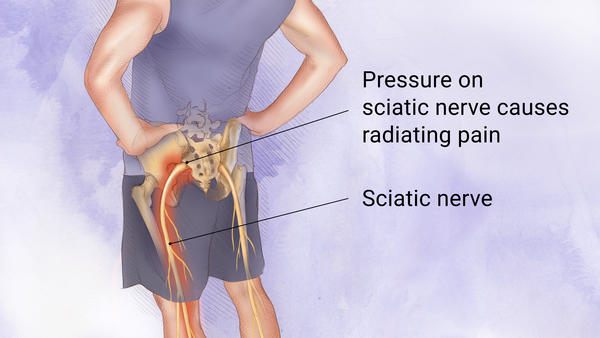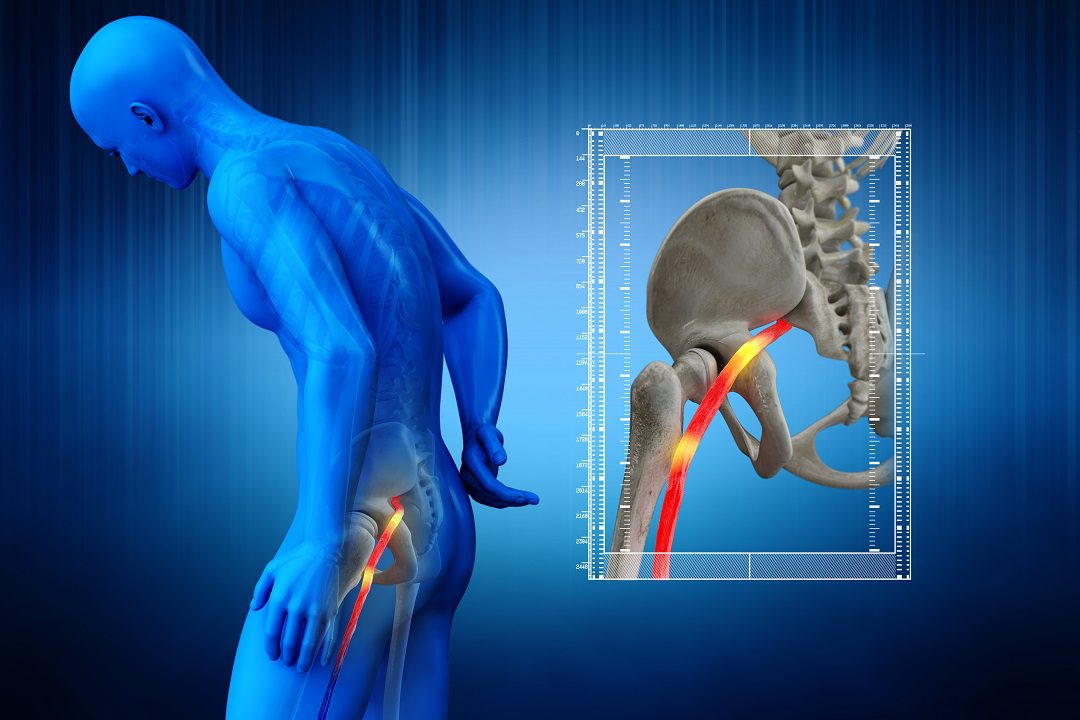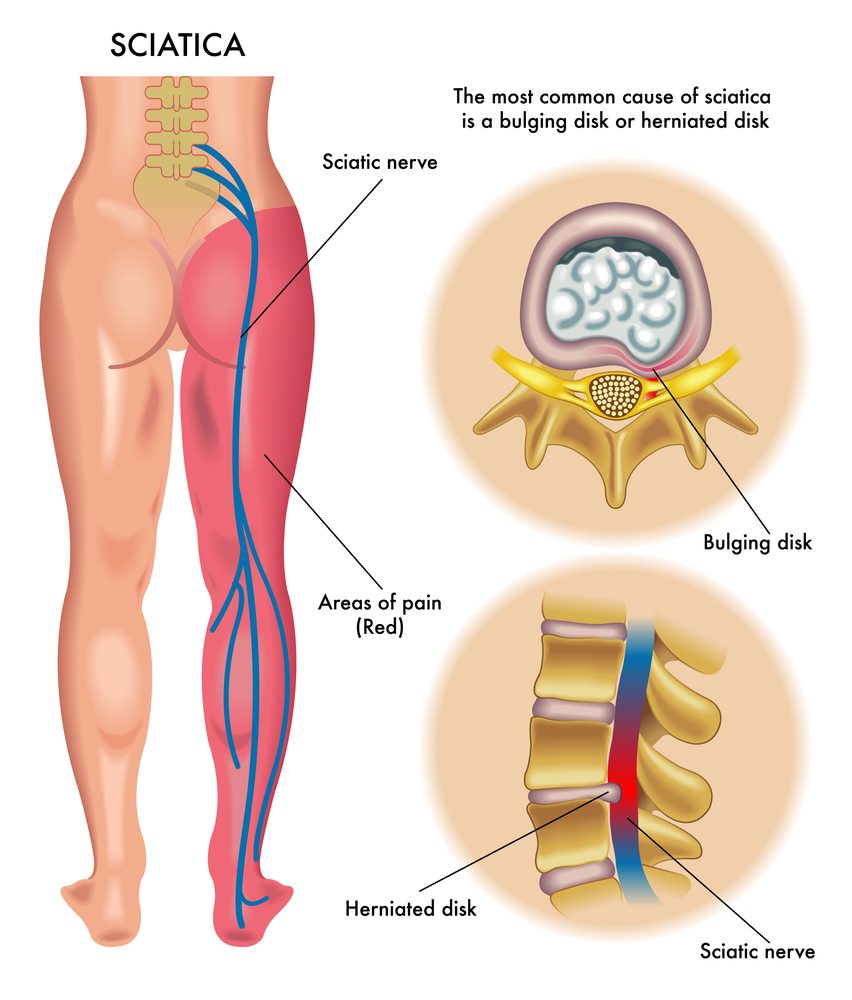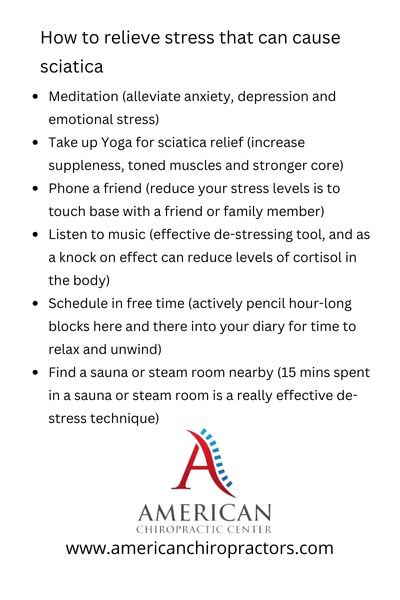Sciatica
Why is My Sciatica Pain Worse at Night?

Sciatica is a type of pain that is caused by irritation or compression of the sciatic nerve, the longest and widest nerve in the body. It can cause pain, numbness, and tingling in the lower back, buttocks, and legs.
Read More About Why is My Sciatica Pain Worse at Night

More Things To Know About Why is My Sciatica Pain Worse at Night
Many people with sciatica find that their pain is worse at night, which can make it difficult to get a good night’s sleep. There are several reasons why sciatica pain may be worse at night, including increased pressure on the sciatic nerve when lying down, increased inflammation in the body, and certain sleeping positions.
In this article, we will discuss some of the possible reasons why sciatica pain may be worse at night and what can be done to alleviate it.
Why is Sciatica Pain Worse at Night?

There are several reasons why sciatica pain may be worse at night. One reason is that during the day, people are typically more active and tend to move around more, which can help to alleviate some of the pressure on the sciatic nerve.
At night, when a person is lying down and not moving, the pressure on the nerve may increase, causing the pain to become worse.
Another reason why sciatica pain may be worse at night is that the body tends to produce more inflammation at night. Inflammation is a normal immune response to injury or tissue damage, but it can also cause pain and swelling. The increased inflammation at night may contribute to the worsening of sciatica pain.
In addition, certain sleeping positions may exacerbate sciatica pain. For example, sleeping on the stomach can put pressure on the lower back and worsen sciatica pain. Similarly, sleeping on a mattress that is too soft or too hard can also cause or worsen sciatica pain.
What Can Be Done To Alleviate Sciatica At Night?
There are several things that a person with sciatica can do to try to alleviate their pain at night. One option is to use a firmer mattress or to add a supportive foam topper to the existing mattress. It is also important to use a pillow that supports the neck and head in a neutral position, as poor alignment can contribute to lower back pain.
Stretching and doing exercises to strengthen the muscles in the lower back, buttocks, and legs can also help to alleviate sciatica pain. A physical therapist or chiropractor can provide guidance on specific stretches and exercises that may be helpful.
Heat or cold therapy may also be beneficial for reducing sciatica pain. A heating pad or warm shower can help to relax the muscles and alleviate pain, while an ice pack can help to reduce inflammation.
In some cases, over-the-counter or prescription medications may be necessary to manage sciatica pain. Nonsteroidal anti-inflammatory drugs (NSAIDs) such as ibuprofen or naproxen can help to reduce inflammation and alleviate pain. In severe cases, a corticosteroid injection may be necessary to reduce inflammation and alleviate pain.
Key Takeaways
Many people with sciatica find that their pain is worse at night, which can make it difficult to get a good night’s sleep. There are several reasons why sciatica pain may be worse at night, including increased pressure on the sciatic nerve when lying down, increased inflammation in the body, and certain sleeping positions. In this article, we will discuss some of the possible reasons why sciatica pain may be worse at night and what can be done to alleviate it.

Doctor Osvaldo Pepa, Neurosurgery Service Physician at Hospital San Martin, La Plata, Argentina. I graduated last November 16, 1984 with a Medical Degree at the Universidad Nacional de La Plata. The Medical Board of La Plata, District 1, licensed me as a Neurosurgeon in 1990. I hold a Provincial and National License and an active member of the Neurosurgery Society of La Plata, World Ozone Therapy Federation, and Inter American Society of Minimally Invasive Surgery.

























